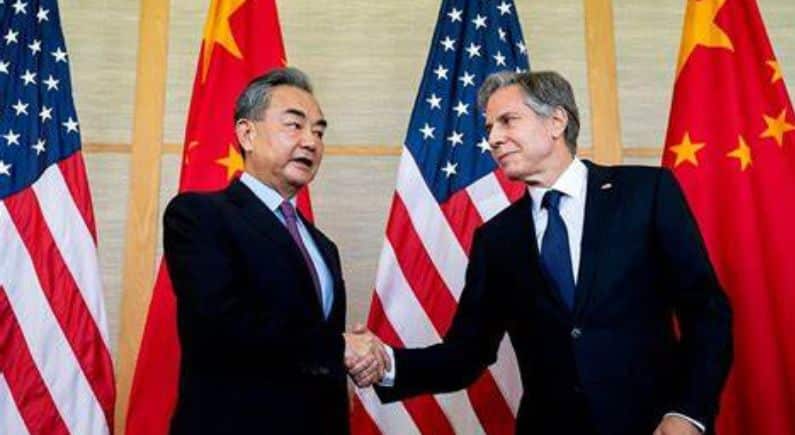Rishi Sunak pledges to make the UK the safest global AI hub (aibc.world)
Brazil’s Nubank launches Mexico office with one million accounts (aibc.world)
Fintech M&A – Visa to acquire Brazil’s Pisio (aibc.world)

US Secretary of State Antony Blinken‘s visit to China aims to improve the strained relations between the two countries. During the visit, Blinken met with China’s top diplomat, Foreign Minister Wang Yi, and a possible meeting with President Xi Jinping.
Talks between Blinken and Chinese Foreign Minister Qin Gang lasted over seven hours but issues like Taiwan, trade, human rights, and fentanyl have not reached any conclusion. Despite acknowledging their profound differences, both sides expressed a desire to stabilize relations.
I raised as a priority the issue of synthetic opioids and fentanyl — a crisis in the United States. Fentanyl is the number one killer of Americans aged 18 to 49. I made clear that we need much greater cooperation on this critical issue. We agreed to explore setting up a working group or joint effort so that we can shut off the flow of precursor chemicals which help fuel this crisis and a growing number of deaths.” Antony Blinken, Secretary of State – US Government
The visit is seen as a precursor to future bilateral meetings and potential talks between Xi and President Joe Biden.
In the meantime, researchers from the University of Central Florida are making significant progress in the field of the detection of Fentanyl with the development of an artificial intelligence (AI) method capable of remotely and swiftly identifying the potent drug and its derivatives. This ground breaking technique utilizes infrared light spectroscopy and can be implemented in a portable device.
Fentanyl, known for its high lethality, presents a serious threat not only to users but also to individuals who come into contact with it and this also includes medical staff in hospitals and clinics. The drug can also be packaged in aerosol form and this further emphasises the urgency to find a solution for its detection.
The research team at the University of Central Florida has developed an AI algorithm capable of identifying both known and emerging derivatives of fentanyl. By leveraging from artificial intelligence and statistical analysis, the scientists have developed algorithms that accurately recognize molecules resembling those found in fentanyl. The algorithm has resulted in an impressive accuracy rate of 92.5 percent for identifying fentanyl-related molecules.
The study identifies fentanyl-related functional groups through infrared spectral data overcoming the challenges in distinguishing various formulations and analogues of fentanyl, including carfentanil.
Researchers reported that it has been difficult to distinguish the similarities between fentanyl and its analogues. Despite structural differences, these compounds share functional groups, enabling them to bind to receptors in the body very rapidly.
The research is ongoing.
US-China relations have deteriorated in recent years, causing concerns about a potential military clash over Taiwan. The Chinese government emphasized the significance of the Taiwan issue, while Blinken stresses the importance of diplomacy and open communication channels. Blinken’s initial visit in February was postponed due to a diplomatic incident involving a Chinese spy balloon flying over US soil. President Biden hopes to meet Xi again and discuss both differences and areas of potential cooperation. The outcome of Blinken’s visit will be closely observed as efforts continue to mend the strained relationship between the two nations.
The study to produce rapid detection of the drug has been very slow but extensive. Researchers anticipate that they are close to concluding on the machine learning-based detection of fentanyl and its derivatives in powder form as the technology is now sufficiently developed for practical, on-site rapid identification.
Related topics: